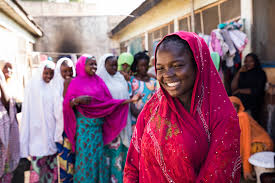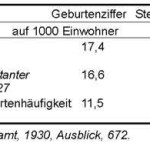The Abuse Of The Right To Sexual And Reproductive Health In Nigeria: The Way Out
Somewhere in Osun State, Nifemi, a three-year old baby, has been put under the knife for her clitoris to be cut off. Somewhere in Zamfara, thirteen-year-old Aisha has been betrothed to a 65-year-old Alhaji. Somewhere in Lekki, ten-year-old Ayoola is being sexually abused by his uncle. Somewhere in Zamfara, new mother, Aisha, just drew her last breath after bleeding profusely due to the negligence of the medical practitioners that handled her childbirth. Each of these people are victims of the failed healthcare system which Nigerians are constantly being subjected to. For a long period of time, the issue of the abuse of the right to sexual and reproductive healthcare in Nigeria has been ignored like a slowly growing pimple. However, the previous pimple has now developed into an unavoidable boil ridden with pus and blood. Much to the chagrin of the powers that be, the ripple effects of the poor handling of sexual and reproductive health in Nigeria, can no longer be swept under the carpet.
The World Health Organisation defines reproductive health as: “A complete state of physical, mental and social wellbeing, and not merely the absence of disease or infirmity in all matters related the reproductive system, its functions and its processes” [1]. The right to sexual and reproductive health has slowly garnered recognition over the past five decades. From the World Population Conferences in Rome and Belgrade held at 1958 and 1965 respectively [2], to the Beijing Conference of 1995 [3]; reproductive and sexual health has constantly been reaffirmed as a sine qua non in the lives of both men and women. In Nigeria, several Acts, and policies alike, have been enacted in order to guarantee this right to every Nigerian. They include, amongst others: The HIV(Anti-Discrimination) Act, 2013; the Violence Against Persons Prohibition Act, 2015; and the National Strategic Framework for the Elimination of Obstetric Fistula in Nigeria (2019-2023) [4].
However, the Nigerian situation seemingly sings a different tune. In spite of the existing legal framework, there have been numerous cases bordering on the flagrant abuse of the right to reproductive and sexual health in Nigeria- ranging from child marriage to sexual violence.
Currently, Nigeria has the highest number of child brides in Africa [5]. Over 20% of global maternal deaths occur in Nigeria with a staggering 600,000 maternal deaths enumerated from 2005-2015 [6]. In the same vein, over 25 percent of Nigerian women have been circumcised, with Osun State hosting the highest prevalence rate of 77 percent [7]. Each of these violations have negative effects on victims, hence, the global attention which the right to reproductive and sexual health has attracted. For example, there has been no report on the health benefits triggered by Female Genital Mutilation; however, numerous studies and research works have reported the harmful effects of female genital mutilation which could range from immediate complications which include: shock, haemorrhage and genital tissue swelling; to long-term complications which include: pain during sexual intercourse, urinary tract infections and menstrual problems [8].
Read more
- Page 2 of 2
- previous page
- 1
- 2



